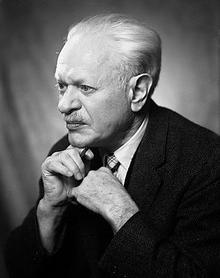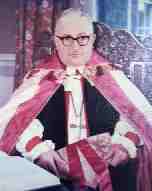Related Research Articles

A metaphor is a figure of speech that, for rhetorical effect, directly refers to one thing by mentioning another. It may provide clarity or identify hidden similarities between two different ideas. Metaphors are usually meant to create a likeness or an analogy.

A symbol is a mark, sign, or word that indicates, signifies, or is understood as representing an idea, object, or relationship. Symbols allow people to go beyond what is known or seen by creating linkages between otherwise different concepts and experiences. All communication is achieved through the use of symbols: for example, a red octagon is a common symbol for "STOP"; on maps, blue lines often represent rivers; and a red rose often symbolizes love and compassion. Numerals are symbols for numbers; letters of an alphabet may be symbols for certain phonemes; and personal names are symbols representing individuals. The academic study of symbols is called semiotics.

Analogy is a comparison or correspondence between two things because of a third element that they are considered to share.
Biblical studies is the academic application of a set of diverse disciplines to the study of the Bible, with Bible referring to the books of the canonical Hebrew Bible in mainstream Jewish usage and the Christian Bible including the canonical Old Testament and New Testament, respectively. For its theory and methods, the field draws on disciplines ranging from ancient history, historical criticism, philology, theology, textual criticism, literary criticism, historical backgrounds, mythology, and comparative religion.

Kenneth Duva Burke was an American literary theorist, as well as poet, essayist, and novelist, who wrote on 20th-century philosophy, aesthetics, criticism, and rhetorical theory. As a literary theorist, Burke was best known for his analyses based on the nature of knowledge. Further, he was one of the first individuals to stray from more traditional rhetoric and view literature as "symbolic action."
Consubstantiality, a term derived from Latin: consubstantialitas, denotes identity of substance or essence in spite of difference in aspect.
The Rhetoric of Hitler's "Battle" is an influential essay written by Kenneth Burke in 1939 which offered a rhetorical analysis of Adolf Hitler's rise to power in Germany. Much of Burke's analysis focuses on Hitler's Mein Kampf. Burke identified four tropes as specific to Hitler's rhetoric: inborn dignity, projection device, symbolic rebirth, and commercial use. Several other tropes are discussed in the essay, "Persuasion".

Owing to its origin in ancient Greece and Rome, English rhetorical theory frequently employs Greek and Latin words as terms of art. This page explains commonly used rhetorical terms in alphabetical order. The brief definitions here are intended to serve as a quick reference rather than an in-depth discussion. For more information, click the terms.
The problem of religious language considers whether it is possible to talk about God meaningfully if the traditional conceptions of God as being incorporeal, infinite, and timeless, are accepted. Because these traditional conceptions of God make it difficult to describe God, religious language has the potential to be meaningless. Theories of religious language either attempt to demonstrate that such language is meaningless, or attempt to show how religious language can still be meaningful.

Dramatism, a communication studies theory, was developed by Kenneth Burke as a tool for analyzing human relationships through the use of language. Burke viewed dramatism from the lens of logology, which studies how people's ways of speaking shape their attitudes towards the world. According to this theory, the world is a stage where all the people present are actors and their actions parallel a drama. Burke then correlates dramatism with motivation, saying that people are "motivated" to behave in response to certain situations, similar to how actors in a play are motivated to behave or function. Burke discusses two important ideas – that life is drama, and the ultimate motive of rhetoric is the purging of guilt. Burke recognized guilt as the base of human emotions and motivations for action. As cited in "A Note on Burke on "Motive"", the author recognized the importance of "motive" in Burke's work. In "Kenneth Burke's concept of motives in rhetorical theory", the authors mentioned that Burke believes that guilt, "combined with other constructs, describes the totality of the compelling force within an event which explains why the event took place."

Charles Edwin Winquist was the Thomas J. Watson Professor of Religion at Syracuse University, and is known for his writings on theology, contemporary continental philosophy and postmodern religion. Before he assumed his position at Syracuse University, he taught religious studies at California State University, Chico, from 1969 to 1986.
Definition of Man, also known as the Definition of Human, originated from a summary essay of Kenneth Burke (1897–1993) which he included in his 1966 work, Language as Symbolic Action. Burke's work in communication has spanned many fields and focuses primarily on rhetoric. He is also known for his theory of Dramatism, wherein he characterizes life to not just reflect or be like a drama but rather that life is drama.

A literary trope is an artistic effect realized with figurative language — word, phrase, image — such as a rhetorical figure. In editorial practice, a trope is "a substitution of a word or phrase by a less literal word or phrase". Semantic change has expanded the definition of the literary term trope to also describe a writer's usage of commonly recurring or overused literary techniques and rhetorical devices, motifs, and clichés in a work of creative literature.

Ian Thomas Ramsey was a British Anglican bishop and academic. He was Professor of the Philosophy of Religion at the University of Oxford, and Bishop of Durham from 1966 until his death in 1972. He wrote extensively on the problem of religious language, Christian ethics, the relationship between science and religion, and Christian apologetics. As a result, he became convinced that a permanent centre was needed for enquiry into these inter-disciplinary areas; and in 1985 the Ian Ramsey Centre for Science and Religion at the University of Oxford was set up to promote discussion on the problems raised for theology and ethics by developments in science, technology and medicine.

In Christianity, the term biblical authority refers to two complementary ideas:
Rhetorical stance refers to the deliberate choices made by a communicator in shaping and presenting their message. It encompasses the strategic decisions regarding language, style, and tone that are employed to achieve a specific communicative purpose. This concept is deeply rooted in rhetorical theory and is a fundamental aspect of effective communication across various disciplines, including literature, public speaking, and academic writing.

Spiritual naturalism, or naturalistic spirituality combines a naturalist philosophy with spirituality. Spiritual naturalism may have first been proposed by Joris-Karl Huysmans in 1895 in his book En Route.
Coming into prominence as a writer during the 1870s, Huysmans quickly established himself among a rising group of writers, the so-called Naturalist school, of whom Émile Zola was the acknowledged head...With Là-bas (1891), a novel which reflected the aesthetics of the spiritualist revival and the contemporary interest in the occult, Huysmans formulated for the first time an aesthetic theory which sought to synthesize the mundane and the transcendent: "spiritual Naturalism".

Modern rhetoric has gone through many changes since the age of ancient Rome and Greece to fit the societal demands of the time. Kenneth Burke, who is largely credited for defining the notion of modern rhetoric, described modern rhetoric as
"rooted in an essential function of language itself, a function that is wholly realistic, and is continually born anew; the use of language as a symbolic means of inducing cooperation in beings that by nature respond to symbols."

Terministic screen is a term in the theory and criticism of rhetoric. It involves the acknowledgment of a language system that determines an individual's perception and symbolic action in the world.

Time and Eternity - An Essay on the Philosophy of Religion is a philosophy book written by Walter Terence Stace. At the time of writing, Stace was a professor of philosophy at Princeton University, where he had worked since 1932 after a 22-year career in the Ceylon Civil Service. Time and Eternity was one of his first books about the philosophy of religion and mysticism, after writing throughout most of the 1930s and 1940s that was influenced by phenomenalist philosophy.
References
- ↑ Burke, Kenneth. The Rhetoric of Religion; Studies in Logology. Berkeley: University of California, 1970. Print.
- ↑ Berg, Herbert. Method & Theory in the Study of Religion. Berlin: Mouton De Bruyter, 2002. Print.
- ↑ Singh, Surjit (1962). "Review of The Rhetoric of Religion: Studies in Logology". Review of Religious Research. 3 (4): 183–184. doi:10.2307/3510454. ISSN 0034-673X.
- ↑ Maddux, Kristy. "Finding Comedy in Theology: A Hopeful Supplement to Kenneth Burke's Logology." Philosophy & Rhetoric 39.3 (2006): 208-10. Print.
- ↑ Burke, Kenneth. "Dramatism And Logology." Communication Quarterly 33.2 (1985): 89-93. Communication & Mass Media Complete. Web. 22 Oct. 2013